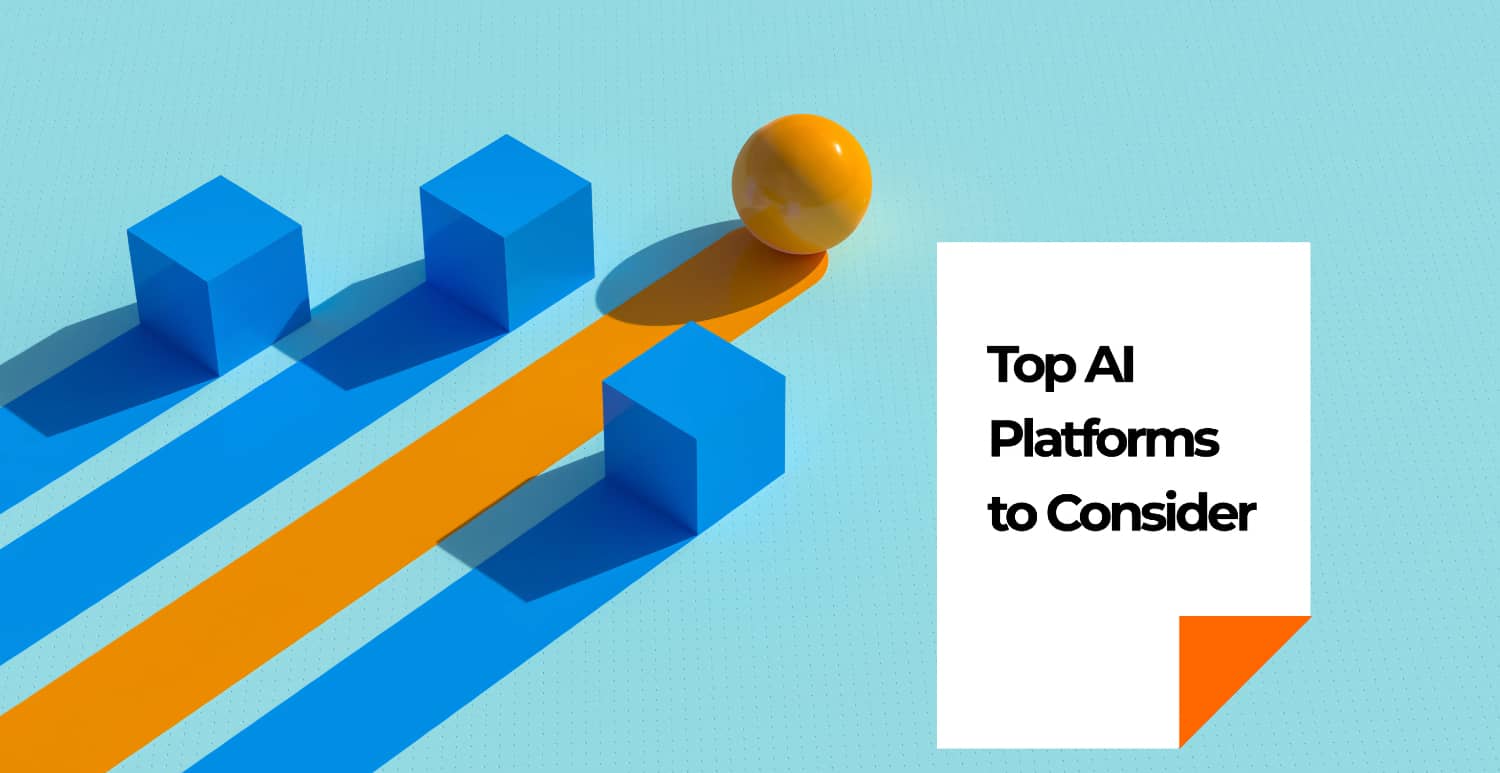As the adoption of AI continues to grow, choosing the right AI platform is crucial for businesses looking to harness the power of this technology. AI platforms offer a wide range of tools and capabilities that enable companies to build, train, deploy, and manage AI applications efficiently.
This comprehensive guide will walk you through the process of selecting the best AI platform for your projects in 2024. We'll explore the key trends shaping the AI platform market, the benefits and capabilities of these platforms, and provide a step-by-step guide to help you make an informed decision.
Understanding the AI Landscape in 2024
The AI landscape is constantly evolving, with new technologies, platforms, and trends emerging at a rapid pace. In 2024, we can expect to see the following key developments:
The rise of end-to-end AI solutions: AI platforms are becoming more comprehensive, offering a complete suite of tools for data preparation, model building, deployment, and management.
Increasing accessibility and user-friendliness: Many AI platforms now feature low-code or no-code interfaces, making it easier for users with limited technical expertise to build and deploy AI applications.
The growth of cloud AI services: Cloud-based AI platforms are gaining popularity, providing scalable and cost-effective solutions for businesses of all sizes.
As the demand for AI professionals continues to grow, it's essential to consider the skills and needs of your team when selecting an AI platform. Look for platforms that offer intuitive interfaces, comprehensive documentation, and robust support to ensure a smooth learning curve and successful adoption.
Key Benefits and Capabilities of AI Platforms
AI platforms offer a range of benefits and capabilities that can help organizations streamline their AI development and deployment processes. Some of the key advantages include:
Democratizing AI: AI platforms enable businesses to make data-driven decisions by providing accessible tools for building and deploying AI applications.
Streamlining development: With pre-built models, AutoML features, and integrated MLOps capabilities, AI platforms can significantly reduce the time and effort required to develop and deploy AI solutions.
Enhancing efficiency and productivity: AI platforms can automate repetitive tasks, optimize processes, and provide valuable insights, leading to improved efficiency and productivity across the organization.
Enabling seamless scalability: Many AI platforms offer scalable infrastructure and tools that allow businesses to easily adapt to changing demands and grow their AI applications as needed.
When evaluating AI platforms, consider the following core features and functionalities:
Feature | Description |
|---|---|
Model building | Tools for creating, training, and optimizing AI models |
Data preparation | Capabilities for cleaning, transforming, and integrating data |
MLOps | Features for managing the deployment, monitoring, and maintenance of AI models |
AutoML | Automated machine learning tools that simplify the model building process |
API access | Ability to integrate the platform with existing systems and applications |
Collaboration | Tools for facilitating teamwork and knowledge sharing among AI practitioners |
Generative AI | Capabilities for generating text, images, and other content using AI algorithms |
A Step-by-Step Guide to Choosing the Right AI Platform

Selecting the best AI platform for your projects requires careful consideration of your organization's goals, technical requirements, and available resources. Follow these steps to make an informed decision:
Define your AI goals and use cases: Clearly identify the specific problems you want to solve and the AI applications you plan to build.
Assess your team's skills and technical requirements: Consider the technical expertise of your team and the programming languages, frameworks, and tools they are comfortable with.
Evaluate the platform's ease of use and learning curve: Look for platforms with intuitive interfaces, comprehensive documentation, and training resources to ensure a smooth onboarding process.
Consider scalability and future growth: Choose a platform that can scale with your business needs and accommodate increasing data volumes and complexity.
Assess data security, privacy, and compliance features: Ensure that the platform offers robust security measures and complies with relevant industry regulations and data protection standards.
Evaluate pricing models and ROI: Compare the costs and benefits of different AI platforms, considering factors such as subscription fees, pay-per-use models, and potential cost savings from increased efficiency and automation.
Conduct thorough research and compare top AI platforms: Analyze the strengths and weaknesses of leading platforms, read user reviews, and consult industry reports to make an informed comparison.
Take advantage of free trials, demos, and proofs of concept: Many AI platforms offer free trials or demo versions, allowing you to test the platform's capabilities and ensure it meets your requirements before making a commitment.

Top AI Platforms to Consider in 2024
The AI platform market is diverse, with a range of comprehensive and specialized solutions catering to different industries and use cases. Some of the top AI platforms to consider in 2024 include:
Comprehensive platforms:
Dataiku: A collaborative AI platform that enables users to build, deploy, and manage AI applications across the enterprise.
H2O.ai: An open-source AI platform that provides a wide range of tools and algorithms for building and deploying AI models.
Cloud-based platforms:
Google Cloud AI Platform: A managed cloud service that offers a complete suite of tools for building, deploying, and managing AI applications.
Amazon SageMaker: A fully-managed platform that enables data scientists and developers to build, train, and deploy machine learning models at scale.
Microsoft Azure Machine Learning: A cloud-based platform that provides end-to-end capabilities for building, deploying, and managing AI solutions.
Specialized platforms:
OpenAI: A research organization focused on developing advanced AI technologies, particularly in the field of natural language processing (NLP).
Pecan: An AI-powered predictive analytics platform that enables businesses to make data-driven decisions using low-code tools.
In addition to these established platforms, keep an eye on emerging AI technologies and startups that may offer innovative solutions tailored to specific industries or use cases.
AI Platform Use Cases and Success Stories
AI platforms have been successfully implemented across a wide range of industries, solving complex problems and driving business value. Some notable examples include:
Healthcare: AI platforms are being used to develop predictive models for early disease detection, personalized treatment recommendations, and drug discovery.
Finance: Banks and financial institutions are leveraging AI platforms to detect fraud, assess credit risk, and provide personalized investment advice.
Retail: AI-powered recommendation systems, demand forecasting, and customer sentiment analysis are helping retailers optimize their operations and improve customer experiences.
Manufacturing: AI platforms are enabling predictive maintenance, quality control, and supply chain optimization in the manufacturing sector.
By studying these success stories and best practices, organizations can gain valuable insights into how to effectively implement and maximize the value of AI platforms in their own projects.
Overcoming Challenges and Ensuring Successful AI Platform Adoption
While AI platforms offer significant benefits, organizations may face certain challenges during the adoption process. To ensure a successful implementation, consider the following:
Addressing common barriers to AI adoption: Identify and address potential obstacles, such as data quality issues, lack of skilled personnel, or organizational resistance to change.
Ensuring data quality and governance: Establish robust data management practices to ensure the accuracy, consistency, and security of the data used to train and deploy AI models.
Fostering a data-driven culture and upskilling your workforce: Encourage a culture of data-driven decision-making and invest in training and development programs to enhance your team's AI skills.
Ongoing monitoring, maintenance, and optimization: Regularly monitor the performance of your AI models, conduct maintenance tasks, and continuously optimize them based on new data and insights.
Staying updated with the latest AI platform developments and best practices: Keep abreast of the latest advancements in AI platforms, attend industry events, and participate in online communities to learn from experts and peers.
Choosing the best AI platform for your projects in 2024 is a critical decision that can significantly impact your organization's success in leveraging this transformative technology. By understanding the key trends, benefits, and capabilities of AI platforms, and following a structured approach to evaluation and selection, you can identify the platform that best aligns with your goals and requirements.


